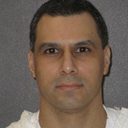
The North Carolina Supreme Court ruled 4 – 3 that physicians cannot be punished by the State Medical Board for taking part in executions. The Medical Board had adopted a policy in January 2007 that their physician’s code of ethics would be violated by a doctor taking part in an execution, subjecting practitioners to having his or her medical license revoked. This policy conflicted with the state law that requires a physician’s presence at all executions, effectively putting North Carolina’s executions on hold. Writing for the majority, Justice Edward Thomas Brady wrote, “[The Medical Board’s] position statement exceeds its authority … because the statement directly contravenes the specific requirement of physician presence.” In the dissenting opinion, Justice Robin Hudson wrote, “The position statement is a valid exercise of [the Medical Board’s] statutory authority. Any change in that authority – which is the practical effect of the majority opinion – is a matter for the General Assembly which granted it, not for the courts.” The medical board did not object to doctors’ presence at executions, only to their participation through the monitoring of the condemned inmate’s vital functions.
Executions are still on hold in North Carolina due to a lawsuit from death row inmates over the execution protocol approved by the Council of State. There are 163 inmates on death row in the state, which has not carried out an execution since August 2006.
(M. Burns, “Court: Physicians must take part in executions,” WRAL TV, May 1, 2009). See Lethal Injection.



